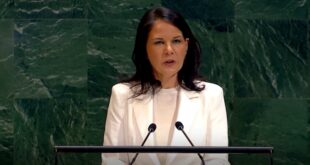As the EU-Africa Summit (29-30 November) kicks off in the Ivorian main city of Abidjan, a plan will be presented which analysts believe will spark an investment boom in Africa to generate employment for the continent’s youths. Chris Bishop* explains the plan and the challenges it faces.
An effort that hopes to draw billions in investment in Africa from Europe wrapped up at the Palace of Culture in Abidjan this week. In many ways, there couldn’t have been a better place for talk of a free market drive to revive the economies of Africa.
For Cote D’Ivoire, for all its economic difficulties, scarce capital and heavy taxes, has a claim to being an economic phoenix rising from the ashes of a violent civil war. Ever since the Ivorian army marched back to its barracks, in 2011, the country has seen signs of an economic revival akin to that of post-Genocide Rwanda and post-war Singapore. In fewer than seven years of peace, Cote D’Ívoire has thrown its doors open to foreign investors on its way to a growth rate of more than 8%, albeit from a very low base.
The European Union-Africa Forum, in Abidjan this week, was here to discuss an ambitious plan to help unleash the entrepreneurial spirit of Africa to create jobs and wealth. The EU is pushing a plan to prise investment out of a tight European financial market – especially from the big pension funds – to plough into entrepreneurs with emphasis on women and the youth.
The plan revolves around a fund of around $4 billion. The EU hopes to leverage this money up to around $44 billion by encouraging powerful financial institutions and pension funds in Europe to get behind it in the hope of high returns. In achieving this, around $1.5 billion of this money will be used as investment guarantees to take the risk out for foreign investors.
“It is done. We passed everything through our legislators in September and you will see the first projects taking shape next year,” says Roberto Ridolfi, in Abidjan, one of the technocrats at the EU who helped guide the plan.
At the conference, young entrepreneurs were given the chance to pitch their ideas to earn the chance of a sliver of the seed capital.
Academic and director general of DEVCO at the European Commission, Stefano Manservisi, is an expert on international and economic integration. He says the EC is in discussions with African nations in a bid to ease the flow of goods and services across borders to encourage investment.
One of the areas that the EU scheme is targeting is technology. I put it to Manservisi that these kinds of investments do not create many jobs in a content that needs about 20 million in the next 20 years.
“You have to remember that Facebook was created in a garage. There are many garages in Africa and people can create wealth and jobs in them if they are given the support and capital,” says Manservisi.
There are also reservations among African leaders about a lack of consultation over plans in this effort to create jobs. People on the ground in Abidjan question whether the benefits will trickle down to the millions living in poverty.
In a year when thousands of Africans died trying to flee this poverty – heading for Europe on leaky boats across the Mediterranean – the EU admits this investment effort may not be a quick fix, but at the very least it is a start.
*Chris Bishop founding editor of Forbes Africa
 THE AFRICAN COURIER. Reporting Africa and its Diaspora! The African Courier is an international magazine published in Germany to report on Africa and the Diaspora African experience. The first issue of the bimonthly magazine appeared on the newsstands on 15 February 1998. The African Courier is a communication forum for European-African political, economic and cultural exchanges, and a voice for Africa in Europe.
THE AFRICAN COURIER. Reporting Africa and its Diaspora! The African Courier is an international magazine published in Germany to report on Africa and the Diaspora African experience. The first issue of the bimonthly magazine appeared on the newsstands on 15 February 1998. The African Courier is a communication forum for European-African political, economic and cultural exchanges, and a voice for Africa in Europe.



















